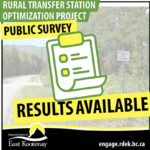Home »

Top 10 riskiest scams of 2024
Canada Risk Report released
Investment scams, including those involving cryptocurrency, remained the riskiest scam type in 2024, according to a new report from the Better Business Bureau.
Financial grooming scams are often complex and devastating for victims. It can take weeks or months for the scammers to build trust with their targets. Once that happens, the scammer encourages the person to try investing, often in cryptocurrency. It always starts small, as trust builds over time. While the investment “grows,” the scammer encourages them to invest even more money. But then the person realizes too late, once they’ve invested a significant amount, that the platform is fake, and they can’t get their money back.
More than 85% of people who were targeted by investment/cryptocurrency scams, No. 1 riskiest, reported losing money to BBB Scam Tracker. It also had the highest median dollar loss at $5,000. Investment scams take many forms, including pressure to purchase, trade, or store digital assets (cryptocurrency) with fraudulent exchanges. Of those who reported an investment scam, over 45% said the incident involved cryptocurrency, and over 20% said the scam was perpetrated by an online contact.
Employment scams and Home Improvement scams remained in the No. 2 and No. 3 spot respectively in 2024. Employment scams make up about 16% of all reported scams, with a median dollar loss of $2500. Home Improvement scams made up about 8% of all reported scams, but had a high susceptibility rate at 83% and a $1500 median dollar loss.
Online purchase (shopping) scams rose this year, landing at No. 4 riskiest. Over 32% of scams submitted to BBB Scam Tracker were online purchase scams, and 87.4% reported losing money.
Phishing/social engineering scams also rose on the list, being over 10% of the scams reported and landing in No. 6 riskiest spot.
“Scammers are spending more time building relationships with their targets, and the result is significant losses,” said Neesha Hothi, Director of Marketing, Better Business Bureau serving Mainland BC. “If somebody you met online is offering to help you invest your money, it’s a huge red flag, and probably a scam.”
Key findings of the report include:
Over 2.4M unique visits to the BBB Scam Tracker and over $61.3M is the estimated dollar amount people avoided losing thanks to the BBB Scam Tracker.
New to the list this year are Counterfeit products and Sweepstakes/lottery/prize scams, whereas Romance scams and Tech Support scams dropped off the list.
Overall reported median dollar loss rose slightly to $311 from $300 and overall reported susceptibility (the percentage of reports with a monetary loss) fell from 61.1% to 59.5% from 2023 to 2024.
People aged 18-34 were most susceptible to Employment scams, whereas those 45-65+ were most susceptible to Home Improvement scams.
People ages 25-34 reported the highest median dollar loss of all age groups ($500), followed by ages 18-24 ($365).
People ages 45-54 were the most susceptible to scams overall at 66%.
Females are slightly more susceptible to scams at 61.1% versus for males at 57.2%; whereas males have a higher median dollar loss at $455 versus $282 for females.
Females are more susceptible to Investment/Cryptocurrency scams; whereas males are more susceptible to Employment scams.
36.2% reported that the scam incident involved social media. The top platforms on which survey respondents reported engaging with scammers were Facebook 57% and Instagram 22.4%.
29.6% reported that their mental health was impacted by the scam incident. About 53% of respondents reported feeling anxiety, stress and/or trauma after the engagement.
Download the Canada 2024 Risk Report.
Submitted by Better Business Bureau







